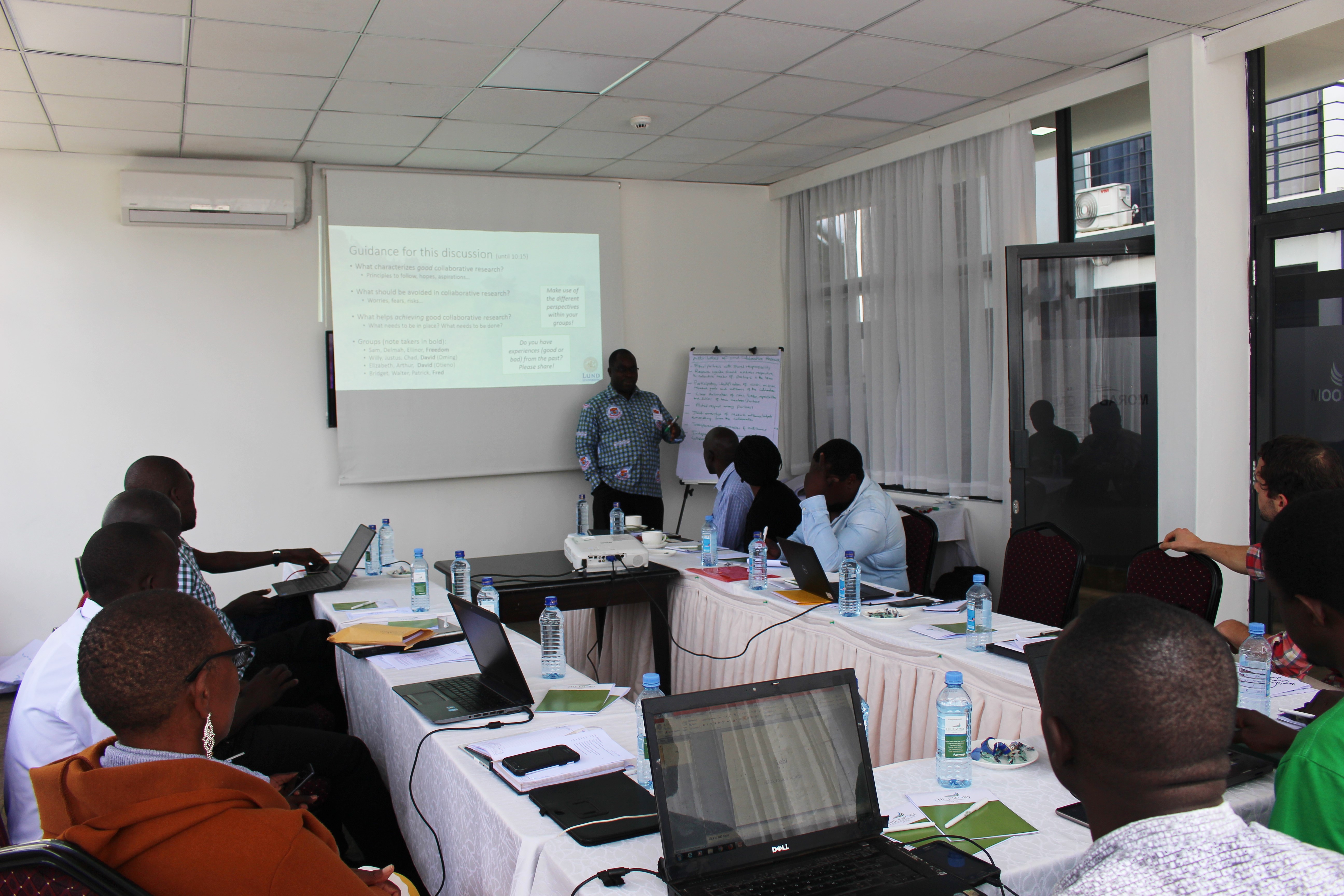The Director of the Directorate of Research Innovation and Consultancy, Prof. Frederick Ato Armah, and the Lund University Centre for Sustainability Studies (LUCSUS), Sweden have been jointly awarded SEK 20 million (which is approximately 2 million Euros) for a new research project.
The project titled: Mobilizing farmer organisations for sustainable agriculture in sub-Saharan Africa: Collaborative comparative analysis of rural social movement building and outcomes in Ghana, Uganda, and Zimbabwe is aimed at mobilising farmer organisations for sustainable agriculture in sub-Saharan Africa. The project is one of eleven new research projects, with a focus on Agenda 2030, which is to be funded in one of the biggest targeted calls ever of the Swedish Research Council (FORMAS).
Background
In October 2019, Prof. Armah was invited together with 14 other participants to respond to the FORMAS Call for proposal for collaborative research on farmer organization and mobilization for sustainable and equitable agricultural development in sub-Saharan Africa. The PI (Dr. Ellinor Isgren) and Co-PI (Dr. Chad Boda), researchers at Lund University Centre for Sustainability Studies (LUCSUS), together with Prof Armah (Co-PI) and some representatives from small-scale farmer associations within Ghana, Uganda, and Zimbabwe met in Nairobi to draft the proposal in October 2019.

About the FORMAS Call
The FORMAS Call aims to create research that is highly relevant to the UN’s global sustainable development goals (SDGs) in Agenda 2030. It is expected that the research offers new perspectives on the SDGs by either highlighting key synergies or conflicts between different goals or by applying humanistic or social science perspectives that could benefit the field of sustainability. Again, the call sought to encourage researchers to both tackle significant scientific challenges and take action to enable their research results to be used to guide society, directly or indirectly, towards realising the SDGs.
Collaborators
On the academic side, the project involves collaboration with the University of Cape Coast (Ghana), Lira University (Uganda), and Sam Moyo Institute of Agrarian Studies. On the civil society side, the Peasant Farmers Association of Ghana, Eastern and Southern Africa Small-scale Farmers Forum in Uganda, and Zimbabwe Small-Scale Organic Farmers Forum will be involved.
Connection of the project to the realisation of the SDGs
Ultimately, the project seeks to generate knowledge that is practically useful for civil society mobilisation around agricultural development, which has an important role to play in making sustainable development realisable. In these countries, as in much of the world, agriculture relates to multiple SDGs – most obviously Zero Hunger but also No Poverty, Life on Land, Climate Change, Gender Equality, and many others – if not all. There is a lot of existing knowledge already about what types of policies and interventions will make agricultural development more sustainable and inclusive. And yet, in many places, both environmental issues and the needs of resource-poor smallholders remain low on the political agenda.
Credit: Isaac Nketsiah

